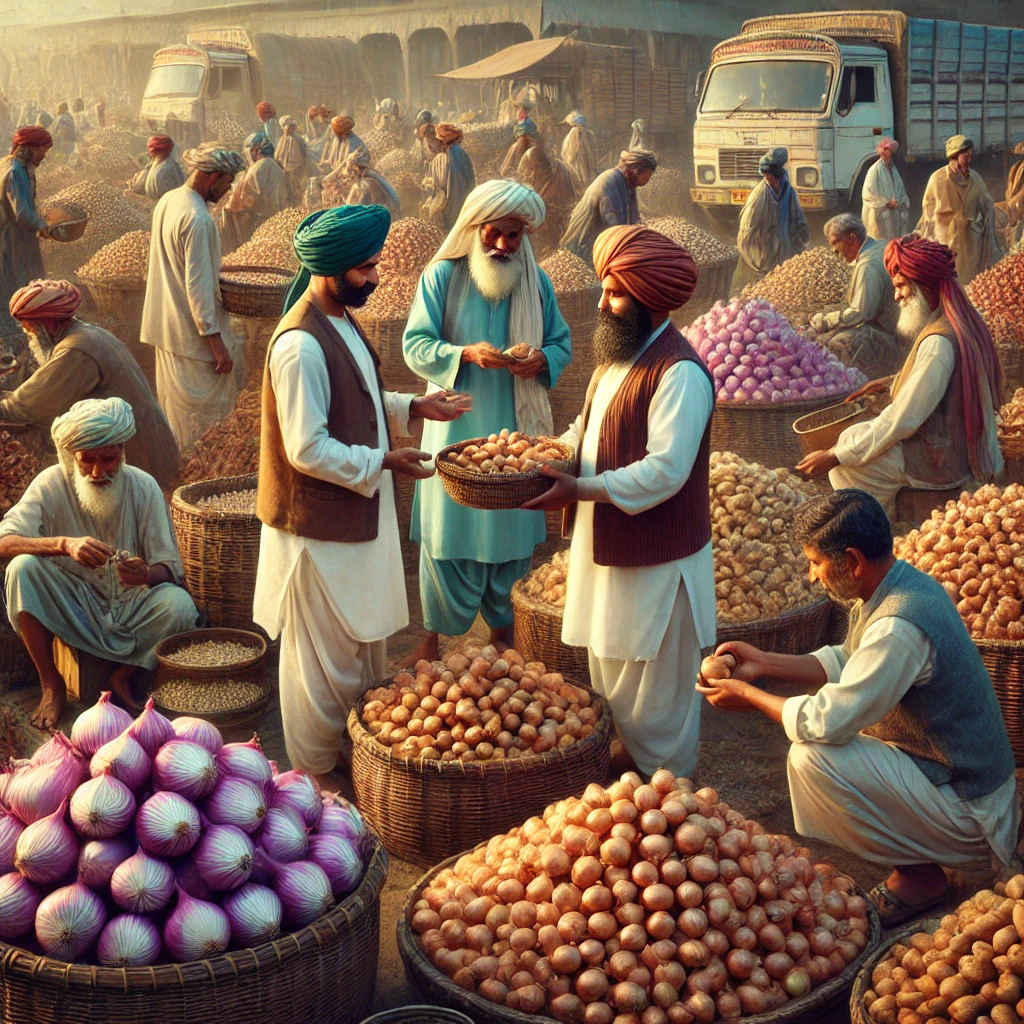India’s agricultural sector, crucial to the country’s economy and food security, is currently facing a significant challenge. According to recent government estimates, onion production is expected to drop by 20%, and potato production by 5%. This decline in the output of key crops poses a serious threat to food inflation and consumer access, complicating the country’s economic stability.
Causes of Production Decline:
- Unpredictable Weather Patterns:
The primary reason for the decline is unexpected changes in weather patterns. Irregular rainfall has caused widespread damage to crops in major onion and potato-producing states. Drought followed by heavy rains has disrupted the crop cycle, making it difficult for farmers to maintain consistent yields. Climate instability continues to impact agricultural production, forcing farmers to adapt to fluctuating conditions. - Rising Agricultural Input Costs:
The increasing costs of inputs like fertilizers, seeds, and pesticides have added additional pressure on farmers. Over the past few years, the sharp rise in these costs has reduced profit margins for small and marginal farmers, who are the primary producers of onions and potatoes. With limited capacity to bear these rising costs, many farmers are struggling to sustain their crops and are falling deeper into debt. - Inadequate Storage Infrastructure:
The lack of adequate cold storage facilities is exacerbating the production crisis for perishable crops like onions and potatoes. Without proper storage, a significant portion of the harvest spoils post-harvest, leading to supply shortages and market volatility. Farmers are often forced to sell their produce immediately at lower prices, while prices skyrocket later when demand increases.
Challenge for the Government
To address this crisis, the government must take immediate steps. Investing in better weather forecasting, developing modern storage facilities, and providing farmers with advanced technology and financial support are crucial measures. If these challenges are not addressed in time, it could lead to greater difficulties in managing the country’s food security and inflation control.







